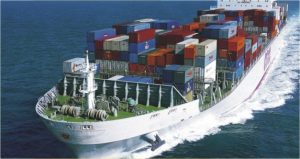- Country lacks vessel fleet capacity
- Requires consortium of investors, creditors
- Need to play international politics
- All P&I coverage done abroad
The world relies on the sea to deliver most of the crude oil, petroleum products, chemical industry products, raw materials, condensed gas, equipment, cars, livestock and many other types of cargo. Not only is sea freight a key driver of the development of international commerce, the transport mode is also reliable and efficient, especially in cases of long-distance. This underscores the need for marine insurance – to protect the vessel as well as the cargo against possible events that could hamper cargo deliveries.

Explaining P&I insurance, Adekunle Segun, a maritime expert, said just like the comprehensive insurance, the best a car owner can have when insuring a motor vehicle, the P&I, which is a third-party insurance is the most significant type of insurance a vessel should have in order to keep getting businesses.
He added that without this type of insurance the vessel cannot operate as the P&I protects any vessel or facility that a subject vessel is doing business with. According to him, what makes it more pronounced is the extent of financial liability involved because not all maritime insurance companies can provide a P&I cover due to the risks involved; but without it, a vessel owner cannot do business.
“The main motive behind P&I insurance is to protect the third-party in event of any damage to the facility. To make it more lucid, if a vessel comes to berth in a place like Lagos, for instance, the vessel must have a valid P&I, amongst other insurance requirements. This is because in the course of berthing or offloading the cargo, if the vessel damages the jetty where she is berthed, the business of the vessel or facility should not be halted for that reason; the P&I company will step in, access the damage and pay as the underwriters of the shipping company,” he said.
Explaining that the P&I company, (P&I club), is in charge of the P&I insurance, the maritime expert said they are not like the regular insurers that we all know due to the magnitude of coverage they provide for their clients. “They are also insurance companies but just with a different cadre. The government of the countries where they are domiciled are seriously involved in the way the business runs,” he further said.
In a bid to elucidate on the extent of coverage the P&I could cover, the maritime expert replied, “To whatever extent their financial muscle can carry. If a vessel or facility owner wants a cover of 10 billion dollars, the P&I company that has the capacity will only fix the premium to be paid and if the payment and other factors are done, a document will be issued to that effect and all is good to go.
“This is why most regular insurance companies cannot do P&I business due to the magnitude of coverage. You can imagine a facility or vessel owner telling other vessels that if they do not have a P&I coverage of up to a billion dollars or more, they cannot be allowed to come near their facility or vessel,” he added.
In spite of the significance of the P&I insurance, experts say only few countries have the P&I club established, as majority of the strong P&I companies are resident in the United Kingdom and Greece, due to the long participation of UK government in shipping activities which earned the country prowess to take up such financial responsibility. Countries like Nigeria only go as far as offering marine products such as the hull insurance, cargo insurance, as they are yet to consolidate up to the level.
Concerned about the situation of P&I in Nigeria, after decades of insurance operation, stakeholders have raised issues with the weak state of insurance performance, which is unable to provide P&I cover in the country, thereby leaving most shipping firms to go abroad just to have P&I coverage.
In the views of industry analysts, the unavailability of P&I focused firms should serve as a push factor to better position insurance in Nigeria. In addition to consolidating insurance, it would serve as an avenue to improve the general economy.
Speaking on the strategies to better equip insurance companies in Nigeria in terms of providing P&I services, Segun noted that while it is not impossible to have P&I companies in Nigeria, a lot of factors need to be taken into consideration.
He said, “This requires a lot of factors to be in place. It involves international politics, amongst others. The question is what is the strength of our maritime participation? In fleet ownership, how many fleets do Nigerians own? For a typical P&I company to be floated there has to be an international consortium of investors and creditors that will sit and agree to provide such services. A lot of factors need to be clearly spelt out before indigenous insurance companies can provide these services. Another thing is that it’s a dollarized service.
“Going by the magnitude of capital flight involved, we can float a P&I firm, but a lot of factors are involved. However, against all odds, we can have our own P&I firm,” he added.








